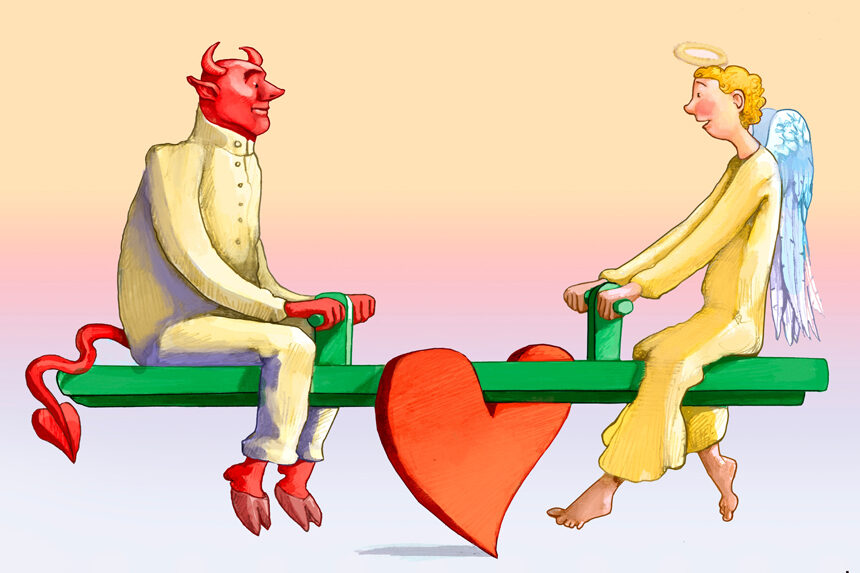Managing editor and logophile Andy Hollandbeck reveals the sometimes surprising roots of common English words and phrases. Remember: Etymology tells us where a word comes from, but not what it means today.
“How do you spell conscience?” asks Carol Connelly (portrayed by Helen Hunt) while she pens a thank-you note in an intense scene from 1997’s As Good As It Gets. Her mother (played by Shirley Knight) spells it out for her, and moments later, Carol blurts out in frustration, “This can’t be right. Con-science?”
The idiom “pros and cons” has primed us to the idea that pro- and con- are opposites. As the old joke goes, “If pro is the opposite of con, what’s the opposite of progress?” The fact that progress and congress aren’t denotatively opposites is the joke.
As I pointed out in an earlier column, the opposite of the Latinate prefix pro- isn’t con- but contra-. English speakers shortened the phrase “pro and contra” to “pro and con.” (It is a bit snappier, no?)
The con- in conscience is an assimilated form of com-. “Assimilated” in this case just means that the final letter of the prefix has changed to be closer (in a phonetic sense) to the first letter of the next syllable. It happens a lot to com-, which appears in assimilated forms in words like collateral, correlate, cognition, and cooperate. Com- comes from the Latin preposition cum “with,” as in magna cum laude, literally “with great praise.”
So the con- in conscience means “with”; does that mean that conscience is really “with science.” The short answer: Yes. Conscience, traces back to the Latin verb conscire, which combines com- with scire “to know” — the source of the English word science. Conscire meant “to know together, to be mutually aware,” especially in the sense of knowing right from wrong. From conscire came the abstract noun conscientia “a joint knowledge,” which became the Old French conscience. It was in Old French that the word took on the more modern sense of conscience as “innermost thoughts” before being borrowed into English in the 12th century.
So yes, Carol Connelly, conscience really is con-science, but the earliest form of the word is old enough that it and science (which for a time was restricted to religion and philosophy) have had plenty of time to change so much that their connection isn’t so obvious anymore.
Become a Saturday Evening Post member and enjoy unlimited access. Subscribe now




Comments
This is an interesting word, isn’t it? I can relate to Helen Hunt’s character’s wondering about spelling the word. It doesn’t come up very often, but when spelling it, one could (easily enough) make the mistake of using the word ‘conscious’ when they meant ‘conscience’. I’m usually conscious if my conscience is bothering me about something.